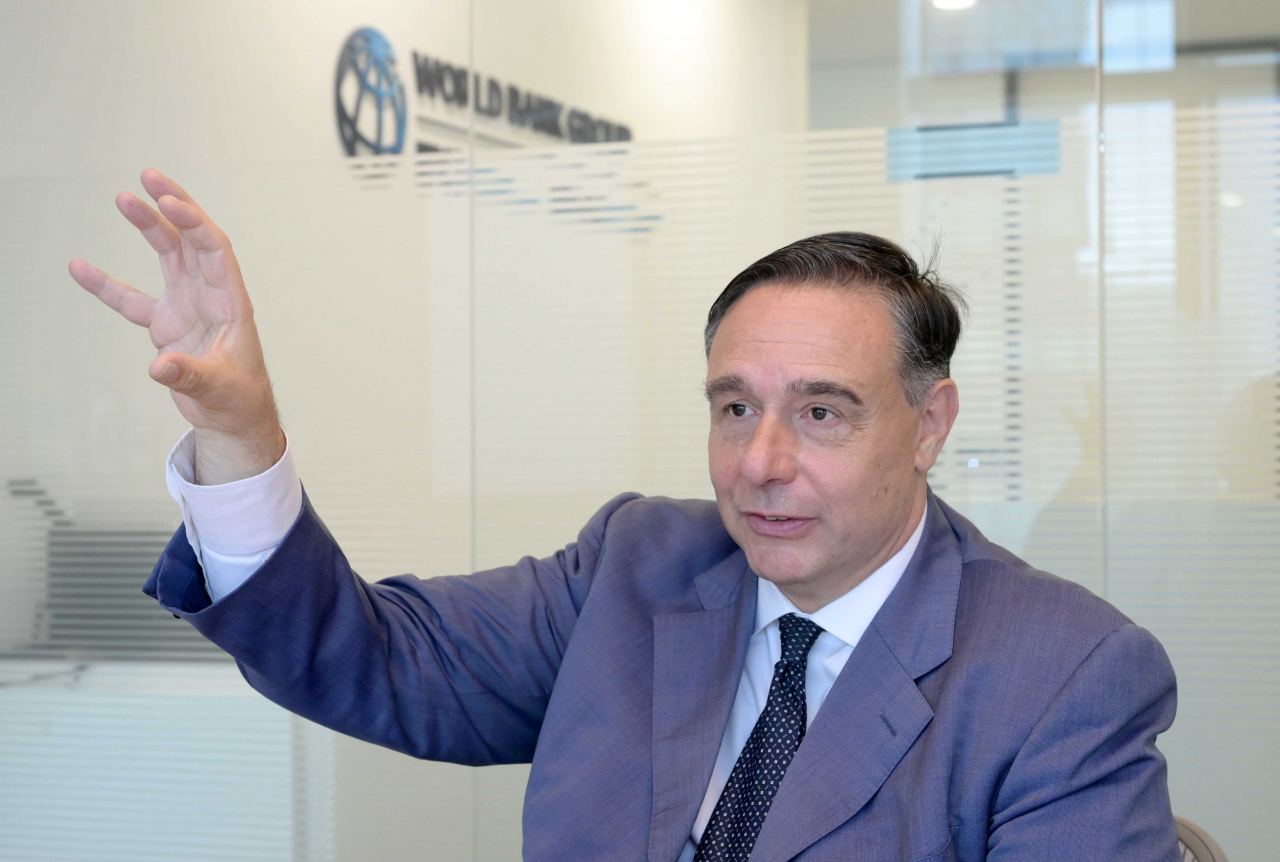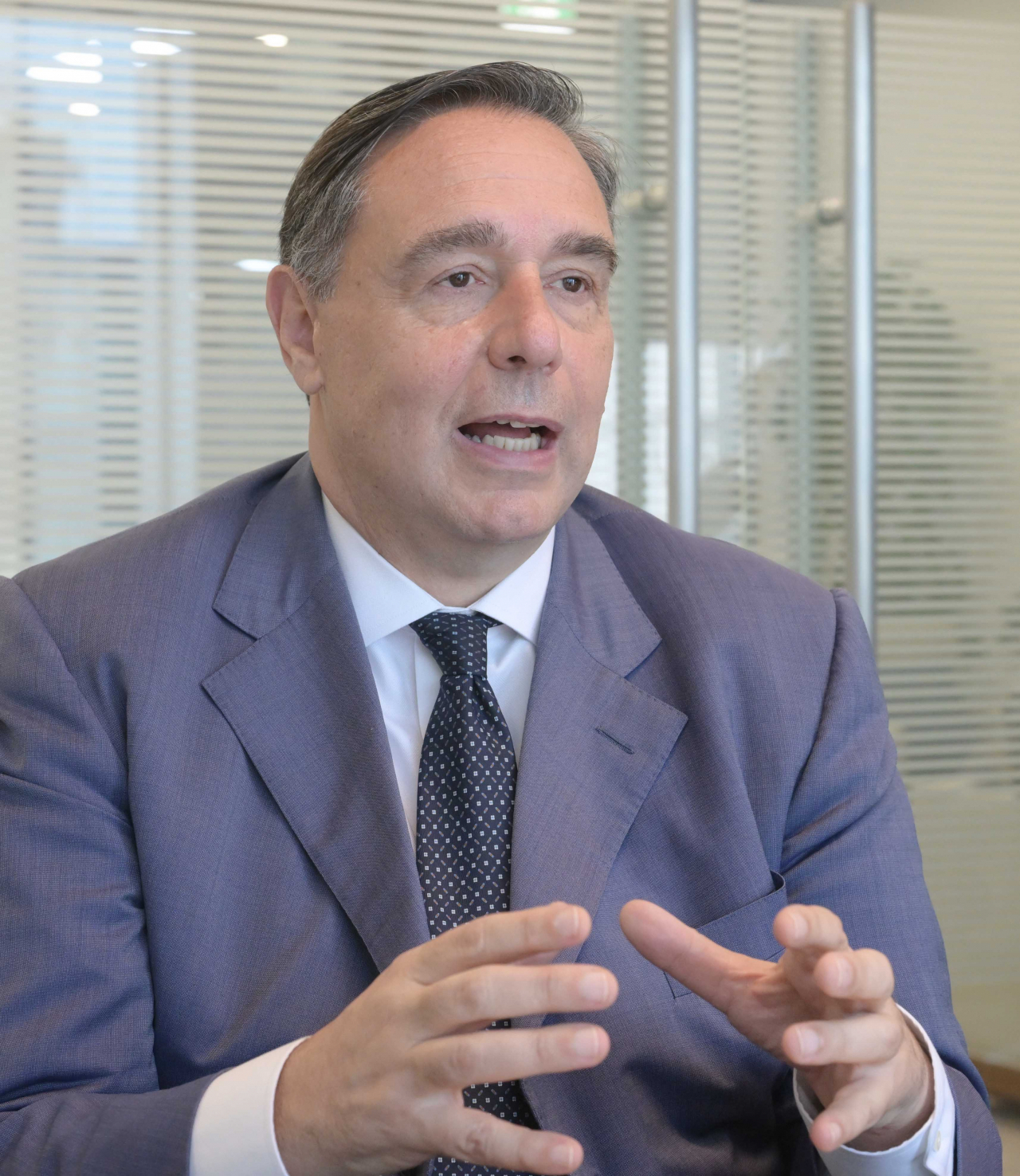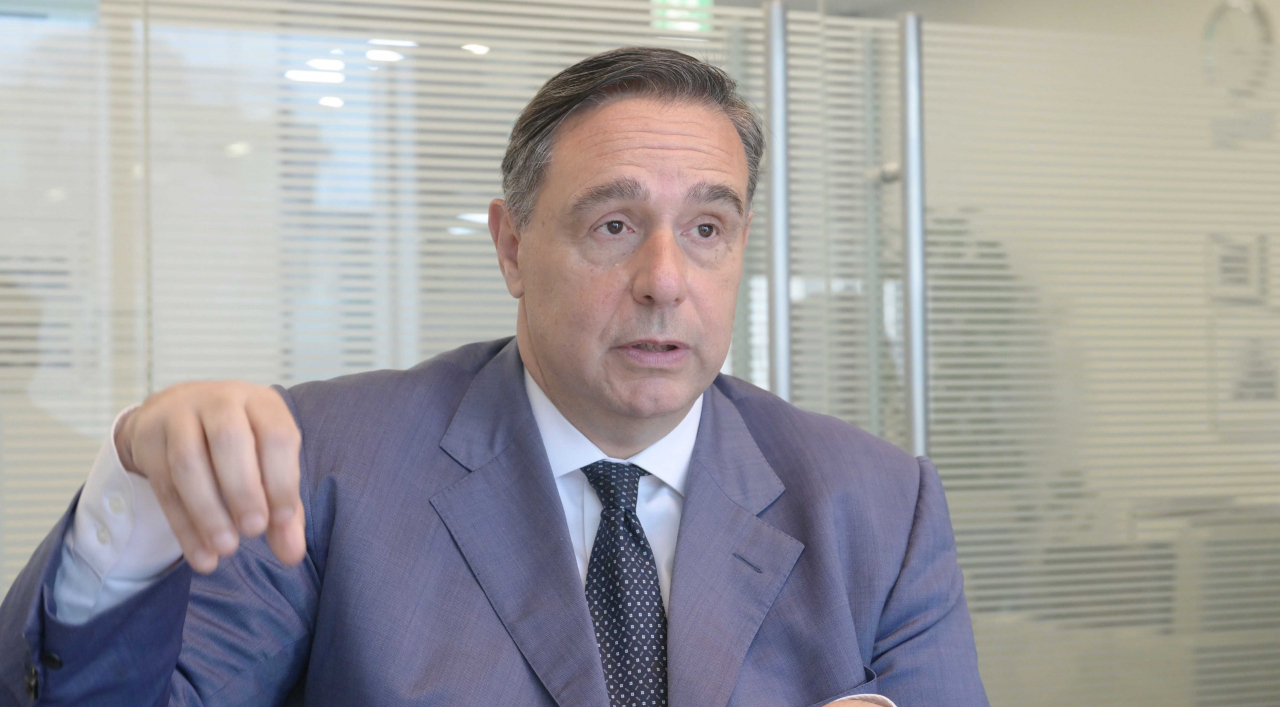 |
Riccardo Puliti, regional vice president for Asia and the Pacific at the International Finance Corporation, speaks during an interview with The Korea Herald in Seoul on May 25. (Lee Sang-sub/The Korea Herald) |
Upon entering the interview room, Riccardo Puliti, the regional vice president for Asia and the Pacific at the International Finance Corporation, underscored that this is his third visit to Korea within the past eight months.
“I was here in November, I was here in February, and I will be back here in September. It is evident that Korea is evolving into a prominent center for sustainable cross border investment,” he said during an interview with The Korea Herald on May 25 at the IFC Korea office in central Seoul.
The highest-ranking official of the IFC in the Asia-Pacific region visited Korea last month to commemorate the 10th anniversary of IFC's Korea office, which was re-established in 2013.
 |
Riccardo Puliti, regional vice president for Asia and the Pacific at the International Finance Corporation, speaks during an interview with The Korea Herald in Seoul on May 25. (Lee Sang-sub/The Korea Herald) |
The IFC is the largest global development organization that collaborates with the private sector in emerging markets. It is also a sister organization to the World Bank under the World Bank Group.
The IFC has 186 member countries worldwide, including Korea, which joined in 1964.
“I must mention that Korea's success story, emerging from a devastating war and rebuilding not only its economy but also a thriving society, serves as an exemplary model of economic, political and social development worldwide.”
Over the past decade, the IFC has provided more than $7 billion in financing for projects involving Korean companies and banks acting as sponsors and partners. Over half of these investments were in the climate business.
Puliti went on and further explained that Korea is a prominent hub for sustainable cross border investment as there are various prosperous industries that the IFC sees as having the potential to contribute to global sustainable growth such as electric vehicles, infrastructure and finance.
“We believe that Korea possesses excellent technology and ideas, not only for electric vehicles themselves but also for the entire supply chain,” he said, citing the organization’s recent $300 million in funding for SK IE Technology, the EV parts maker affiliated with SK Group.
Of the total green loan package, two-thirds will come directly from the IFC, while the remainder will be offered by other private banks participating in the funding program. SK IE Technology plans to use the fresh funding to expand the production of lithium-ion battery separators in Poland, its production base in Europe.
“It is an encouraging development, especially in a time of multiple global crises, to witness the willingness to invest worldwide,” Puliti added
Additionally, he believes that infrastructure remains a major strength of Korea.
“We are discussing a water infrastructure project in Jakarta with K-Water. Infrastructure plays a crucial role," Puliti said.
Puliti was referring to a 200 billion won ($154 million) metropolitan tap water project in Jakarta, Indonesia.
Known as the Karian Metropolitan City Tap Water Supply Project, it aims to provide approximately 400,000 tons of tap water daily from the Karian dam to Jakarta.
A consortium led by South Korea's state-funded Korea Water Resources Corporation (K-water) has secured this project.
The IFC is also actively working with local finance groups, according to Puliti.
“We are interested in collaborating with your financial institutions in climate financing and sustainable financing, specifically in greening commercial banks. This is why we signed the memorandum of understanding with Shinhan Financial Group.”
Last month, Shinhan Financial Group signed an MOU to expand collaboration in the global environmental, social and corporate governance fields.
Shinhan Financial said it will collaborate with the IFC in promoting sustainable finance through joint investments, the development of related businesses, and providing support for voluntary carbon emission trading projects in emerging countries.
 |
Riccardo Puliti, regional vice president for Asia and the Pacific at the International Finance Corporation, speaks during an interview with The Korea Herald in Seoul on May 25. (Lee Sang-sub/The Korea Herald) |
In addition to the relatively conventional areas of cross-border investment such as EVs, infrastructure and finance, the IFC's regional vice president also expressed a strong interest in Korea's entertainment industry.
He praised the global influence of Korean movies and pop music, acknowledging their significant soft power, and also expressed a desire to learn from Korea's creative ecosystem in the entertainment industry.
“Many are recognizing Korea's ecosystem, which focuses on education and schools that produce exceptional scriptwriters, songwriters and performers. Korea has become a significant hub for content creation, especially in Asia,” he said.
“The creative industry is generating numerous job opportunities, with countless young men and women contributing to content creation. Therefore, we are increasingly attentive to this industry from a job creation perspective," he added.







